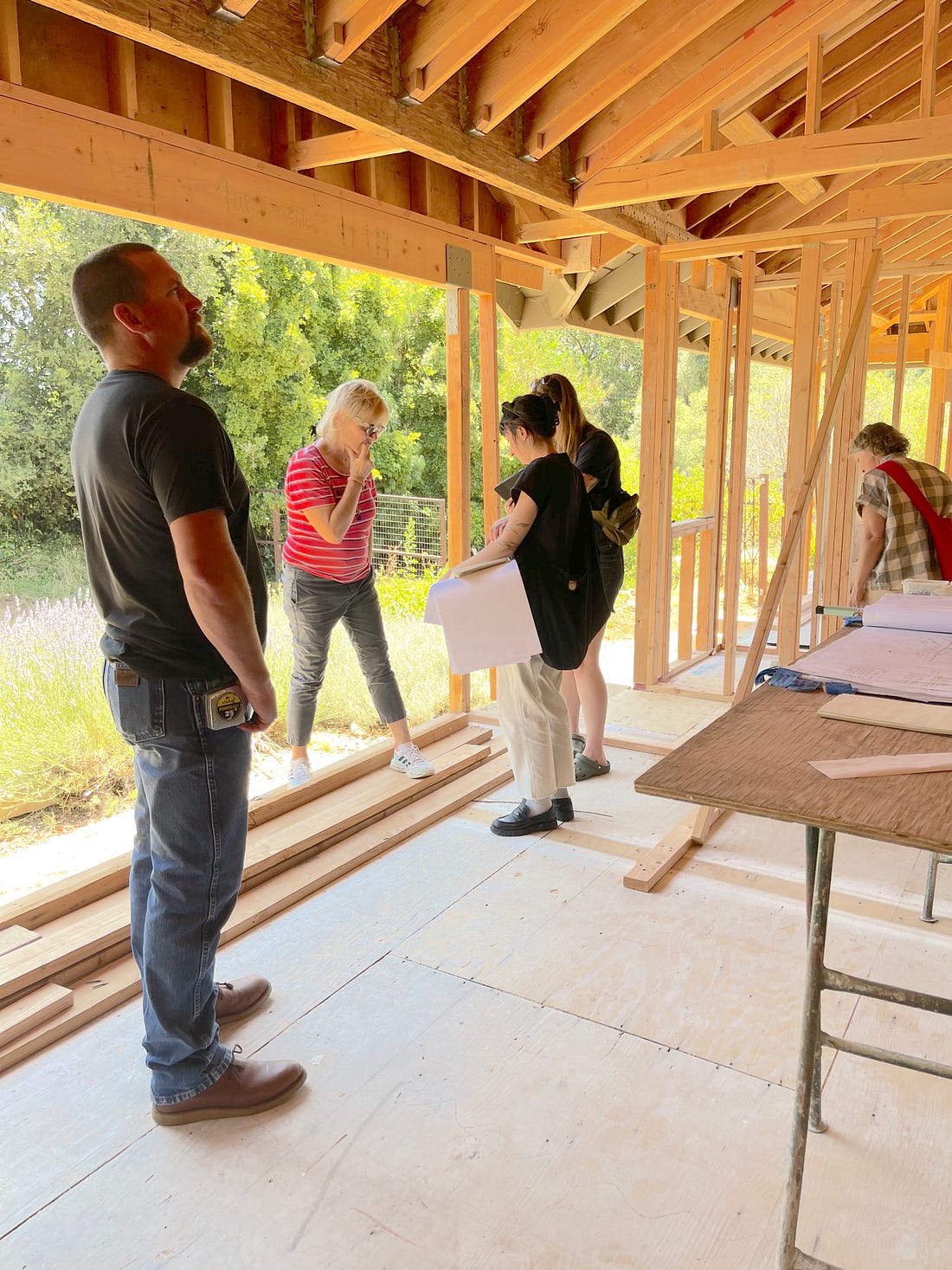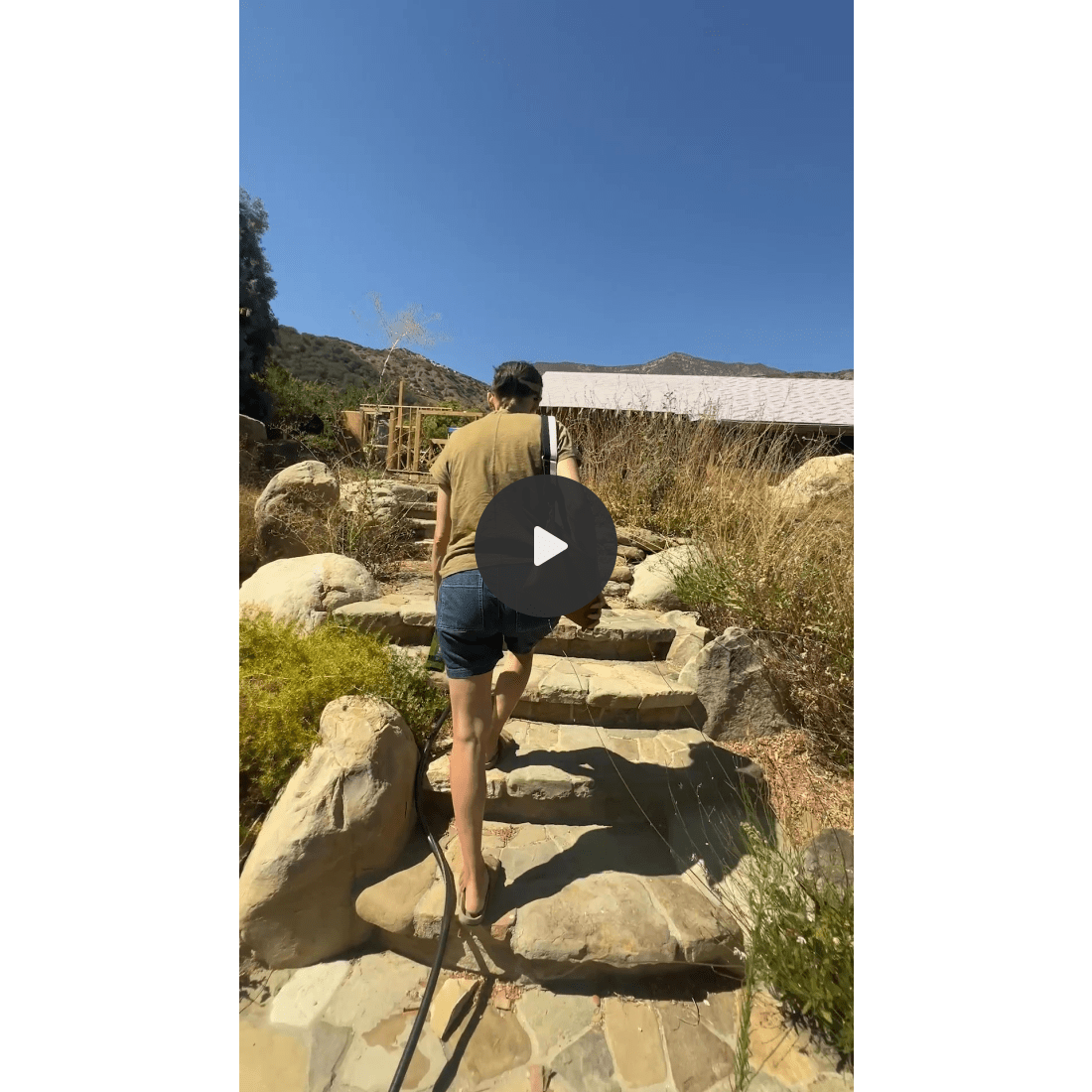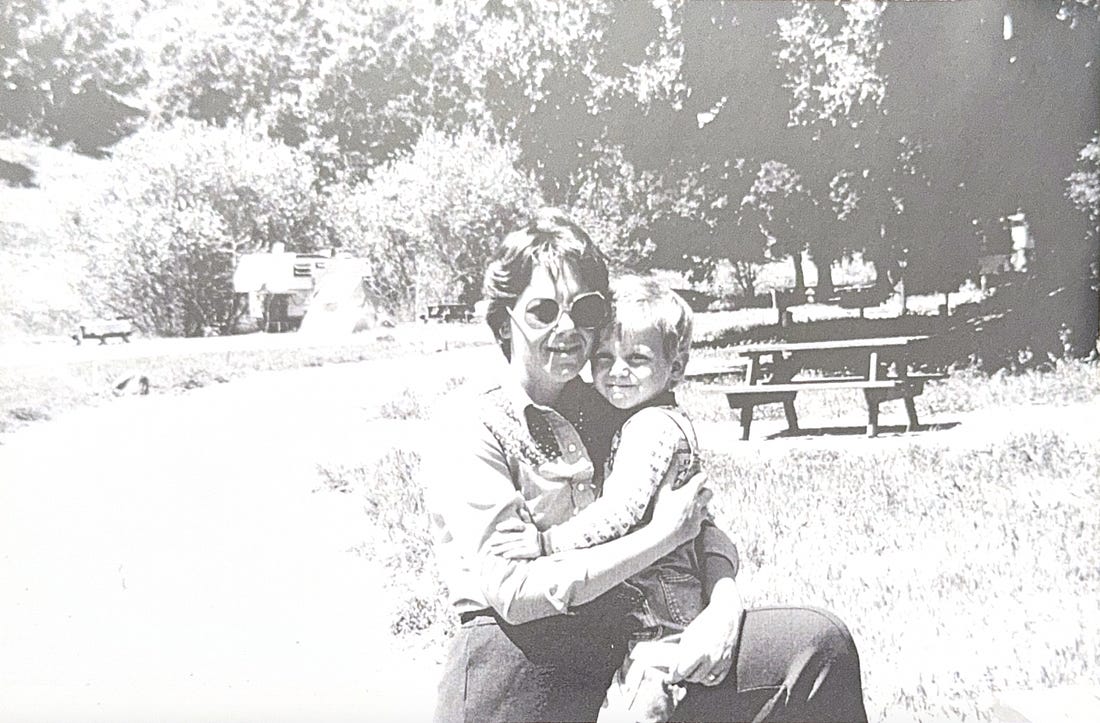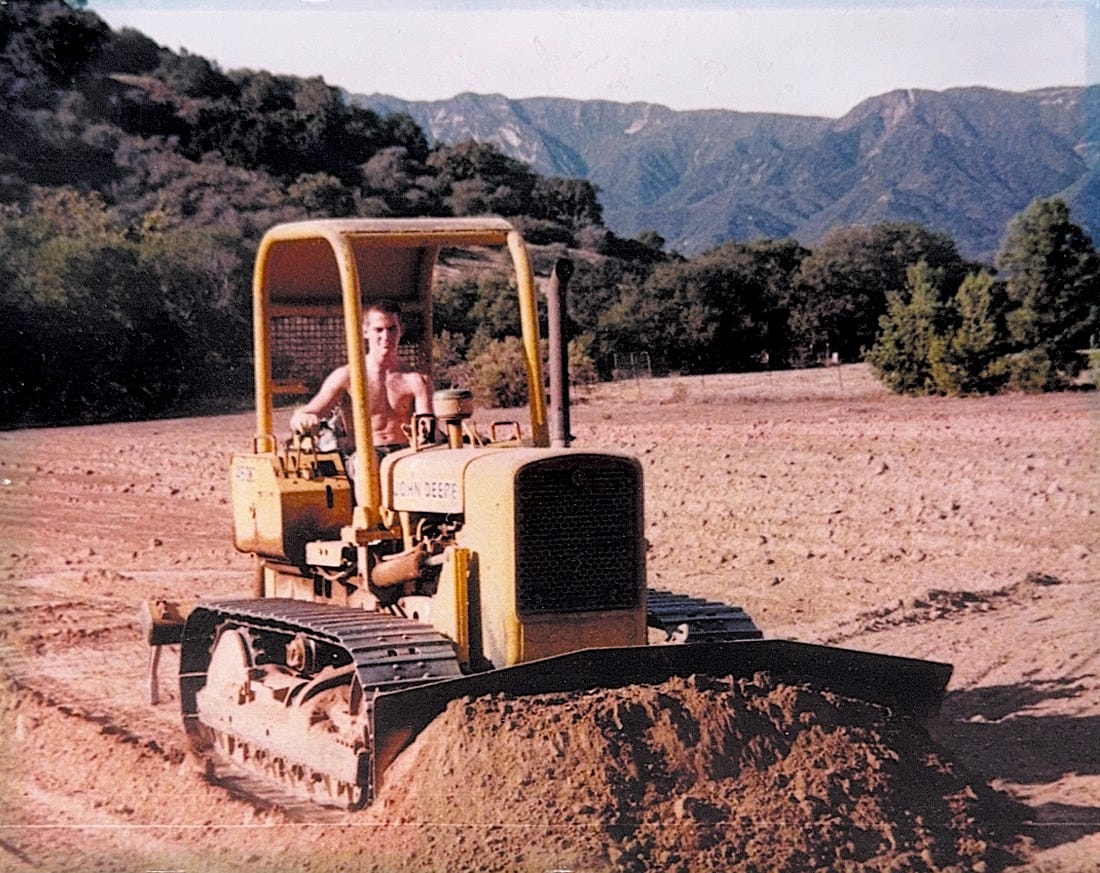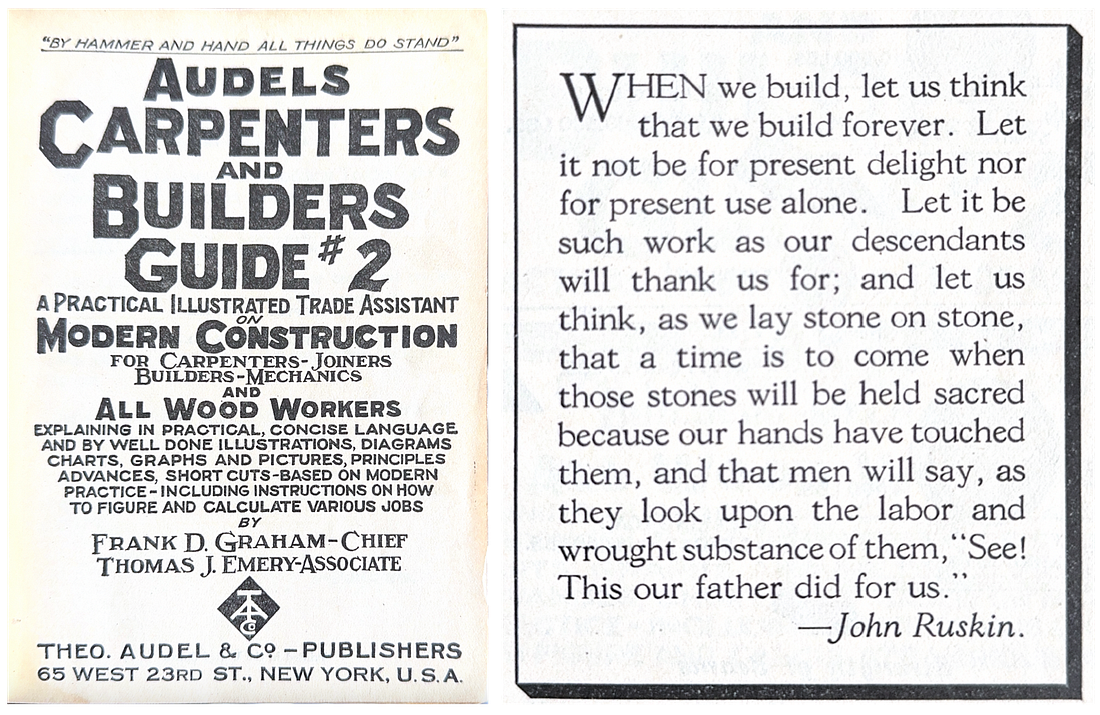My contractor’s 12 tips on realistic timelines, transparent pricing, and how HGTV changed the industryPlus, the summery tomato syrup I’m making for drinks and vinaigrettes.Today, our contractor, Evan, shares his thoughts on how to identify a good contractor, how he sets up a good relationship with a homeowner, and what HGTV did to the industry. Before we get started, I wanted to share an interview I did with my former colleague and friend, Christine Muhlke, on her substack Xtine. Christine and I got off to a rough start as colleagues; we cover this, as well as being a parent when you have a busy work life, ambition, work politics, and life changes—all my favorite topics! Hope you’ll check it out here. Evan, our contractor, doesn’t call often. When he does, the calls go like this, “Hey, I wanted to let you know that X is happening. I don’t think you want X to be happening. So I suggest we do Y. That okay with you?” It usually is. As a longtime manager, it drives me crazy when people come to me with a problem and no ideas for solutions. So I immediately warmed to Evan’s no-nonsense style. Just last week, he called to let me know that we have a coyote den on our property. Definitely not what I wanted to hear, as an owner of a 12-pound city dog who’s afraid of bicycles. “I saw a momma and a baby,” he said. Also, he noted that we have a lot of rodent activity. “The snakes are thriving,” he said. “You don’t want rattlesnakes on your property.” I even more definitely didn’t want to hear this. But Evan had walked the perimeter of our property, identified where the coyote was entering, and had a good fence company lined up for repairs. When Barbara Bestor, our architect, was noodling over alternatives for our existing patio roof, Evan suggested a butterfly roof. It was the simplest and least expensive solution: Yes, please, and thank you! When we were talking about hose bib locations, Evan proposed rerouting the water line for the hose near the garage, so that it would draw on filtered water from the house. This would mean when we washed our car it wouldn’t leave spots, as the hard water in the landscape water lines would have. Before we finalized plans for our work spaces, which have an adjoining wall, Evan recommended we consider using thicker, sound-insulating “quiet rock” rather than ordinary drywall, so we wouldn’t hear each other in meetings. All great ideas that showed he wasn’t just following the blueprint, but thinking empathetically and creatively on our behalf. And when our project end date got pushed back a few months, and we hopped on a call with him and our architect, he jumped right in and said, “This is on me. I own it. And I’m sorry.” Isn’t this what everyone wants from their contractor? Tad and I are feeling extremely lucky that Barbara recommended Evan to us. Without further ado, I’d like to introduce you to Evan Warren, founder of Warren Construction. He has worked in Ventura County for his entire career and has helped to build more than 50 homes. Our conversation has been condensed and edited. Also, while we were talking, Evan was at the job site of another client, the designer Barbara Barry, who stopped by our zoom to say hi. Ojai is friendly like that. In our project, I’ve been struck by how much improvisation there is in the construction. We thought we planned with a lot of detail, but what I’m seeing is that you can have all the drawings in the world and you're still going to have to improvise on the spot frequently. Yeah, there's a set of drawings that are detailed, but only to a degree, right? Well, there are 46 of those for your house. That's 46 pages of details that weren't inside of the approved drawing set. But they matter. We have to get them right. So it takes the next level of clarification, basically, to build a really nice custom home. Nothing is perfect. This is a living thing. It's human beings creating a structure, but we try to narrow the margin of error as much as possible. I like what Barbara Barry says, "Good design feels effortless.” When you walk into a space, it shouldn't feel heavy. It shouldn't be taking your mind in multiple different directions, like, "Oh, why doesn't this line up?" or, “Why did they do that?” It should be a calm space. I listened to your Homeward intro video and that seems like how you view spending time at home: everything just works, everything's purposeful. You’re a Californian, right? Yep, I grew up in Oak View. I was born in Salinas, but I don't remember it. Was your family in farming? Salinas is such an agricultural area. No, my biological father was a Southern Baptist pastor. My parents got divorced when I was five. My stepdad was in construction. He was actually a developer and a general contractor in upstate New York. He stepped backwards down a stairwell and fell two stories and broke his back. He became a paraplegic and moved back to Ventura, where he was from, to live with his mom, who helped take care of him until he was able to be more mobile. Then he started running a church retreat center. We were actually homeless and living in a camper at the campground/retreat center. My mom became the secretary to book events and my stepdad was the executive director, so that's how they met. With his construction background, they were developing that property constantly with new buildings and pools and different stuff, and he would manage all of it. From when I was six years old I was running around picking up nails so tractors didn't get flat tires and scrapping wood and things like that. When did you start working for someone else or for yourself? When I was 17, I started in construction full-time. I didn't even have a car, and I had to hitch a ride with a coworker. We were working at this exclusive community near Carpinteria called Sandyland Cove. We were a subcontractor, literally just building a fence. A redwood board and batten fence that was 400 feet long and cost $120,000 in 2001. We're talking a very exclusive community. Wow. That's a nice fence! So that's basically where my experience started on the high-end. I was just a kid, really, just a helper. Then I went to work for a couple of different contractors. About 10 years of my experience was with a company called Allen Construction. They were big on green building when that was everybody's important thing. I worked my way up from carpenter to framing foreman, then became a superintendent and ran several projects. (That’s around when I first met Barbara Barry. We remodeled her main house, which was designed by a guy named Rodney Walker, an architect who did Case Study homes. She lives in what was his personal house, and I've worked on three Rodney Walker homes in Ojai.) After that, I became the field operations manager. I was in charge of our in-house concrete, framing, and finished carpentry crew. I had, like, 33 employees that worked under me. I’m pretty proud that I was the first manager voted employee of the year. Is that the typical trajectory within a contracting organization? I don't know that it’s exactly typical, but I look at life in general as a ladder: you reach the top and then there's a sideways move to a taller ladder. Basically, you max out where you can go and when you see there's no path to keep climbing, you have to move sideways—sometimes you even climb a little bit down to get sideways and go up again. But that's ultimately what led me to get my contractor's license. I'd proven myself over and over and over again. You get 18 years into the trades—and this is all I know—then you just decide you’ve got to work for yourself. Was there always part of you that thought, “I want to run the show, I want to run my own business”? Well, I would love to do what my stepdad was doing and develop homes. Because I've worked on beautiful, high-end homes. There's a standard that you want to achieve. I would ultimately like to develop beautiful homes and take a little bit of the complexity out of the situation. We have three different design teams on your project and sometimes to move ahead we have to get an answer out of three different people. Would you envision buying existing houses and renovating, or buying land and building from the ground up? In California, buying land is probably not the best thing. You'd end up spending so much money. There's so much time lost in trying to get things approved. I remember we had a conversation with you and Barbara Bestor about getting started on our house before we had a full plan and budget, because it would be faster and allow you to understand any issues. But it felt too scary to us financially because we thought, if we start by opening up the house, we don't know what we're signing up for, you know? Well, it's reacting to a space, and that takes a level of trust, right? You had never met me; you had never worked with Barbara. You're 2,500 miles away. You've got to feel like you have a known quantity before you just jump in. But, you know, if I did two or three more houses for you, you'd say, "Evan, let's go, we'll do it your way.” How has home building shifted over the years? Are there stylistic changes? Are people prioritizing different materials, features, or areas of their homes?... Subscribe to Homeward to unlock the rest.Become a paying subscriber of Homeward to get access to this post and other subscriber-only content. A subscription gets you:
|


